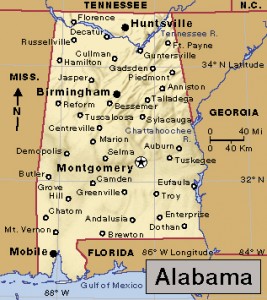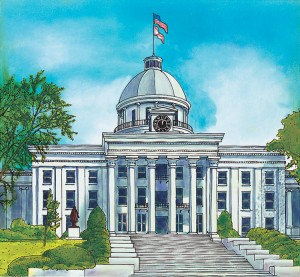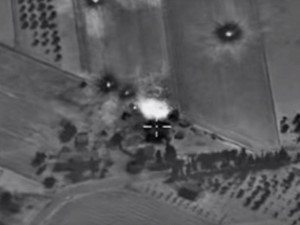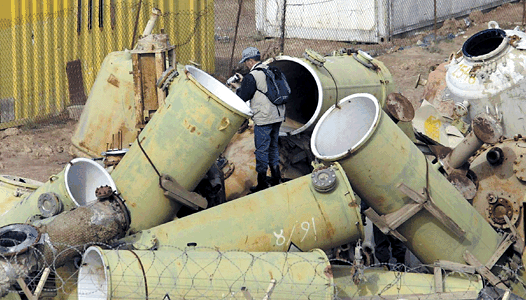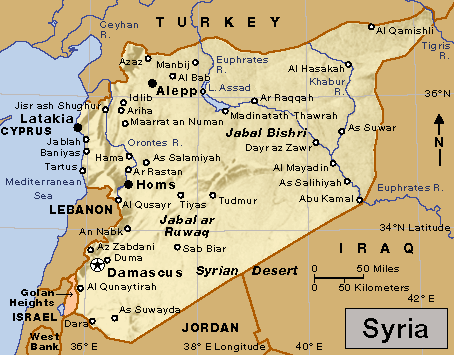Alabama 200
Friday, December 13th, 2019December 13, 2019
Tomorrow, on December 14, the southern state of Alabama celebrates its 200th birthday. Alabama entered the Union as the 22nd state in 1819, and celebrations and events have commemorated the bicentenary throughout the year.

Alabama’s Gulf Coast is the site of numerous resorts and vacation homes. This long, sandy peninsula extends into the Gulf of Mexico between Mobile and Perdido bays. Credit: © Jeff Greenberg, Alamy Images
The cities of Birmingham, Huntsville (site of the 1819 Alabama Constitutional Convention), and Montgomery (the capital) hosted special art and history exhibitions, concerts, and dances. A traveling exhibit, “The Cases and Faces that Changed a Nation,” detailed landmark civil rights court cases that originated in Alabama and profiled the three United States Supreme Court justices from the state.
The Alabama region was the home of Native Americans for thousands of years before Spanish explorers arrived in the first half of the 1500’s. Spain, France, and Great Britain alternately controlled the area before it became part of the United States in 1795.
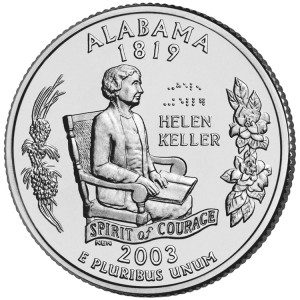
The Alabama state quarter features an image of Helen Keller, an untiring supporter of people with disabilities. The banner “Spirit of Courage” lies beneath her portrait. The coin includes Keller’s name in the Braille alphabet, a writing system that can be read by touch. The coin also contains borders of magnolias and branches of the longleaf pine, the state tree. Alabama became the nation’s 22nd state 200 years ago on Dec. 14, 1819. Credit: U.S. Mint
Alabama, a state that allowed slavery, seceded from the Union in 1861 and fought with the Confederacy during the American Civil War (1861-1865). Alabama reentered the Union in 1870, but racial strife in the state continued for another 100 years. Many important events of the civil rights movement of the 1950’s and 1960’s took place in Alabama.

